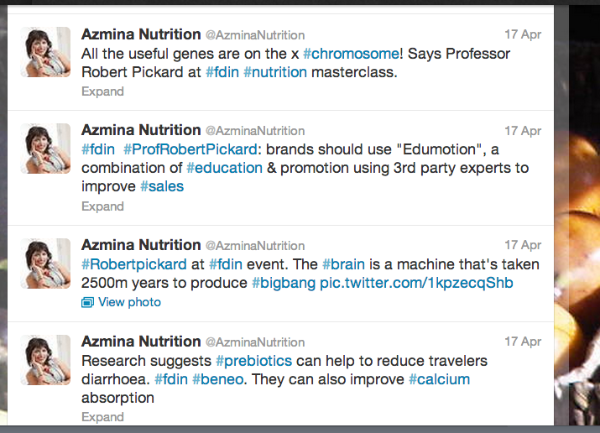I was lucky enough to attend the latest Food and Drink Innovation Network Nutrition & Science Claims Masterclass event in Daventry. I haven’t been to one of Jeffrey’s seminars for some time and this was a chance for me to be reminded of how refreshing these events can be. Learning aside, I met some inspiring people, was fed and watered tastefully, and also had a fun time.
Speakers included Dr Carrie Ruxton, Claire Nuttall, Dr Janice Harland, David Jago from Mintel and the eminent Professor Rob Pickard. The short and sharp lectures were interspersed with team exercises and networking opportunities.
10 take-outs from the day:
- The consumer needs to “feel the benefit” if you’re making a nutrition claim. However, adding nutrients doesn’t often translate to benefit for a number of years.
- If the shopper buys something that doesn’t taste good, they’re unlikely to buy it again.
- Let’s get health on the shopping list! Manufacturers need to help people interpret labels and health info (cue the registered dietitian…).
- There are a number of issues consumers are concerned about – bone and health issues are amongst the big ones.
- The Scientific Advisory Committee on Nutrition is reviewing vitamin D and carbohydrate evidence, so there may be more public health campaigns that could work to the benefit of food manufacturers.
- Brands can start the education process by using credible experts to help communicate issues such as bone density in teenagers. This type of responsible advice can help create long-term loyalty to a brand.
- Asian dishes seem to be penetrating much of Europe. There’s a lot of focus on nutrient claims regarding eyesight improvement in countries like Japan and China. New ingredients from Asia will gradually filter through to the UK – we may see more “Beauty Food”.
- Food-based advice is important for brands – how much of a food you need to eat to get a benefit and derive recommended nutrient intakes.
- We can’t get complex science across on a pack, and we need to use consumer-friendly info to help the brain to analyse messages. The brain depends on repeated messages, so brands need to repeat key statements on all communications. Alliteration is an incredibly powerful means of communication.
- You don’t necessarily need to talk about the benefit – other things like graphics on-pack can convey a clear message.
If you want more snippets, check out my tweets below. And you can download the presentations here.



